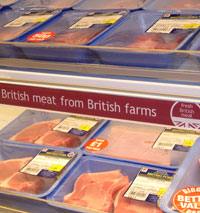Industry warning over leaked meat report

The livestock industry is urging the government “not to rush to judgement” over a report that says eating less red meat lowers the risk of developing cancer.
The government-commissioned report – due to be issued on Friday (25 February) but leaked to the media last week – is set to recommend that consumers should limit the amount of red and processed meat to 70g a day.
The amount is the equivalent to three rashers of bacon a day, or a large pack (500g) of minced beef, two 8oz steaks or four 4oz pork chops over a week.
The report, compiled by the Scientific Advisory Committee on Nutrition on behalf of the Department of Health, was carried out to review dietary advice on meat as a source of iron.
Its draft findings – published in June 2009 – said lower consumption of red and processed meat could reduce the risk of cancer and said consumption should be kept to 70g a day “as a precaution”.
But the industry said the government should consider the findings carefully before making any recommendations over the amount of meat people should eat. “The red meat industry, which embraces farmers, processors and retailers, will despair if it becomes the target of yet another in a long line of alarmist reports,” said National Beef Association director Kim Haywood.
“We have yet to see the full report, but we have read media observations on its leaked contents and are hoping that its authors have been aware that an abundance of research already completed in the UK and the USA has clearly concluded there is no significant link between eating fresh red meat and bowel cancer.”
Mick Sloyan, BPEX sector director, said most people in the UK were already within the suggested limits of red meat consumption.
“Taking into account the findings of the BNF report, we see nothing to suggest that people should be called on to make a significant reduction in their red meat consumption levels,” he said.
“We await the publication of the SACN report with interest, and hope the health benefits of red meat have been fully considered.”
